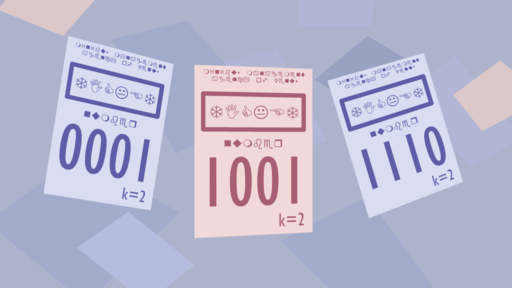310276: CF1808E1. Minibuses on Venus (easy version)
Description
This is the easy version of the problem. The only difference between the three versions is the constraints on $n$ and $k$. You can make hacks only if all versions of the problem are solved.
Maxim is a minibus driver on Venus.
To ride on Maxim's minibus, you need a ticket. Each ticket has a number consisting of $n$ digits. However, as we know, the residents of Venus use a numeral system with base $k$, rather than the decimal system. Therefore, the ticket number can be considered as a sequence of $n$ integers from $0$ to $k-1$, inclusive.
The residents of Venus consider a ticket to be lucky if there is a digit on it that is equal to the sum of the remaining digits, modulo $k$. For example, if $k=10$, then the ticket $7135$ is lucky because $7 + 1 + 5 \equiv 3 \pmod{10}$. On the other hand, the ticket $7136$ is not lucky because no digit is equal to the sum of the others modulo $10$.
Once, while on a trip, Maxim wondered: how many lucky tickets exist? At the same time, Maxim understands that this number can be very large, so he is interested only in the answer modulo some prime number $m$.

The only line of the input contains three integers $n$, $k$ and $m$ ($1 \le n \le 100$, $1 \le k \le 30$, $10^8 \le m \le 10^9 + 7$, $m$ is a prime number) — the number of digits on the ticket, the base of the numeral system on Venus, and the module for answer calculation.
OutputPrint one integer — the number of lucky tickets modulo $m$, i. e. the remainder after dividing the answer by $m$.
ExamplesInput3 2 1000000007Output
4Input
3 4 1000000007Output
28Note
In the first example, there are only four lucky tickets: $000$, $011$, $101$, and $110$.